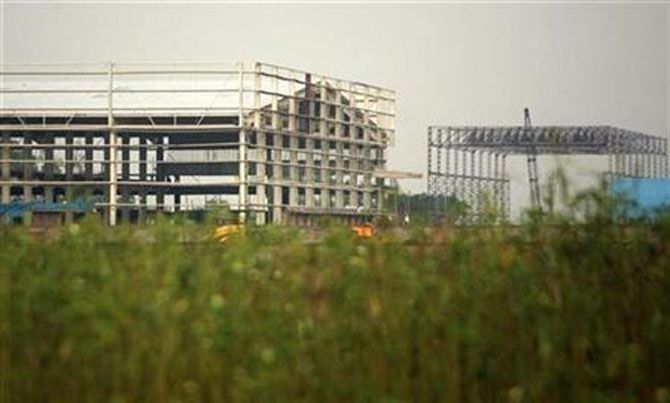Hours after taking charge as CM, Mamata had announced returning 400 acres to 'unwilling' land-losers

Salboni, the site for JSW Steel's proposed mega steel plant, and Singur, the erstwhile site for Tata Motors' Nano plant, have always been antithetical. If the former is an oasis in the battle for land rights, inhabited by 'willing' land losers, the latter has seen one of the most violent agitations against land acquisition.
Yet, as Salboni's contrarian land losers reject the plots offered, it has ramifications for Singur.
JSW Steel had signed a development agreement with the Left Front-led West Bengal government in 2007 for a 10-million tonne steel plant and 1,600-Mw power plant. But a change of government in 2011, the mining mess and finally, de-allocation of coal blocks in keeping with the Supreme Court order, prompted it to put the project on hold last year.
Soon after, however, the company announced it would return the private land aggregating to 294 acres to land losers, free of cost, after the state government conveyed that Salboni was becoming restive. But not land has been distributed because people want industry, not land.
"We don't want the land. But if the project is not going to come up, then we should be given the original plots. Why should I take a plot which is less valuable," asks Subhash Mahato, who lost his land. The problem is that the private land measuring 294 acres is scattered across the 4,300-acre site.
The non-homogenous character of land within the 35-km boundary wall that ring-fences the site has become a huge stumbling block. But with the government on one side, and 'willing' land losers on the other, this was a simpler task.
Cut to Singur. It resurrected Mamata Banerjee's political career and the discontent of 2,000-odd 'unwilling' land losers became the centre of her political campaign. She claimed the 'unwilling' accounted for 400 acres and not 181 acres as was being projected by the Left Front-led West Bengal government back in 2006-2008.
The agitation finally led Tata Motors to pull out the project from Singur in 2008. The Left Front was routed in the elections of 2011, and Banerjee stormed into Writers' Building, the state secretariat.
Hours after taking charge, she announced the Cabinet decision to return 400 acres to unwilling land-losers; Tatas could keep the remaining 600 acres.
That was followed up with the Singur Land Rehabilitation and Development Bill, which was passed in the state Assembly on June 14, 2011, vesting the entire land allocated to Tata Motors and its vendors with the state government. After a few rounds of legal battles, it's now in the Supreme Court, pending hearing.
As in the case of Salboni, the 400 acres belonging to the 'unwilling' land losers are scattered across the 1,000-acre project site. If Banerjee wins the legal battle, then the 400 acres to be returned would have to be contiguous because the position of the government is that 600 acres would be kept for industry.
That leads to the obvious conclusion that many of the 2,000 'unwilling' land losers would not get back their land; they could either get back less valuable land or land belonging to 'willing' land losers. Would that be okay with the 'willing' land losers?
"First, it is unlike that the state government would win this case because this will set a precedence for all land acquisition cases. Distributing the land is a much more complicated issue.
The price of land along the highway is around Rs 1.5 crore an acre whereas interior plots are priced at Rs 36-40 lakh an acre. Why should anyone along the highway settle for interior plots?," asks Udayan Das, convenor, Singur Shilpa Bachao Committee. Das had plots along the highway and in the interiors of the project site as well.
Becharam Manna, minister of state for land, land reforms, agriculture and agricultural marketing, has a counter point. "Why should the 'willing' land losers throw a spanner when they have already taken compensation?," he asked, adding: "Let the court decide in our favour and then we will figure out how to distribute the land."
That might not be an immediate worry for Banerjee. West Bengal will go to elections in May next year, and the date for hearing in the Singur case is yet to be fixed.







 © 2025
© 2025